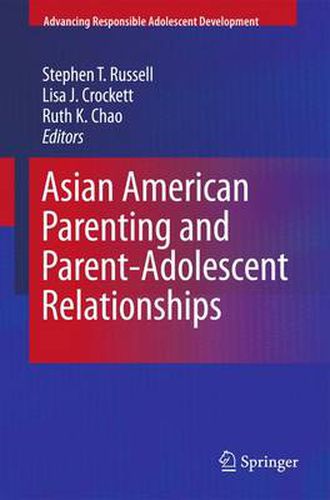Readings Newsletter
Become a Readings Member to make your shopping experience even easier.
Sign in or sign up for free!
You’re not far away from qualifying for FREE standard shipping within Australia
You’ve qualified for FREE standard shipping within Australia
The cart is loading…






This title is printed to order. This book may have been self-published. If so, we cannot guarantee the quality of the content. In the main most books will have gone through the editing process however some may not. We therefore suggest that you be aware of this before ordering this book. If in doubt check either the author or publisher’s details as we are unable to accept any returns unless they are faulty. Please contact us if you have any questions.
The relationships between children and their parents are the building blocks for f- ily relationships throughout life. The nature of the parent-child relationship begins with parenting-the practices and strategies that parents engage in as they raise their children. Parenting during childhood sets the stage for parent-adolescent relati- ships. These relationships make a critical difference during the teenage years: we know that when parent-adolescent relationships are healthy and strong, adolescents are more likely to have high aspirations and achievement, and to make healthier choices when it comes to risk-taking. Most of the research in this ?eld has been based in the United States and has been conducted through studies of European American families. Yet a growing body of research suggests important ethnic differences in styles of parenting and the qua- ties characterizing the parent-adolescent relationship. In this area of research, most existing studies have examined ethnic and cultural group differences using widely accepted measures and concepts of parenting. Comparative studies assume that dimensions of parenting such as parental warmth or control have the same meaning across cultures; however, given that conceptualizations of adolescent-parent re- tionships have been developed and tested on samples comprised largely of European Americans, we cannot rule out the possibility that the way we understand parenting has been shaped by the predominantly Western- and U. S. -focused research in this ?eld.
$9.00 standard shipping within Australia
FREE standard shipping within Australia for orders over $100.00
Express & International shipping calculated at checkout
This title is printed to order. This book may have been self-published. If so, we cannot guarantee the quality of the content. In the main most books will have gone through the editing process however some may not. We therefore suggest that you be aware of this before ordering this book. If in doubt check either the author or publisher’s details as we are unable to accept any returns unless they are faulty. Please contact us if you have any questions.
The relationships between children and their parents are the building blocks for f- ily relationships throughout life. The nature of the parent-child relationship begins with parenting-the practices and strategies that parents engage in as they raise their children. Parenting during childhood sets the stage for parent-adolescent relati- ships. These relationships make a critical difference during the teenage years: we know that when parent-adolescent relationships are healthy and strong, adolescents are more likely to have high aspirations and achievement, and to make healthier choices when it comes to risk-taking. Most of the research in this ?eld has been based in the United States and has been conducted through studies of European American families. Yet a growing body of research suggests important ethnic differences in styles of parenting and the qua- ties characterizing the parent-adolescent relationship. In this area of research, most existing studies have examined ethnic and cultural group differences using widely accepted measures and concepts of parenting. Comparative studies assume that dimensions of parenting such as parental warmth or control have the same meaning across cultures; however, given that conceptualizations of adolescent-parent re- tionships have been developed and tested on samples comprised largely of European Americans, we cannot rule out the possibility that the way we understand parenting has been shaped by the predominantly Western- and U. S. -focused research in this ?eld.